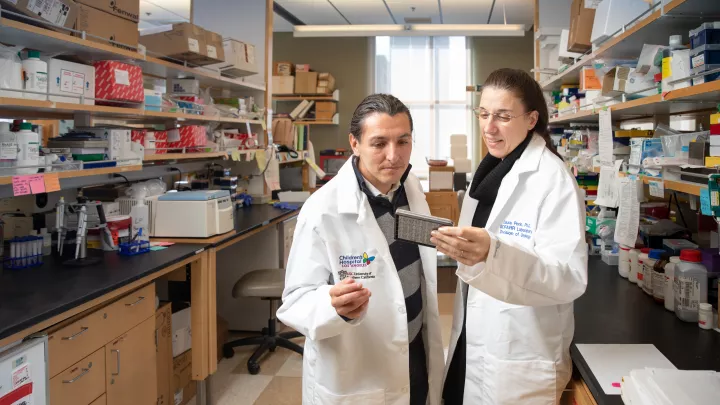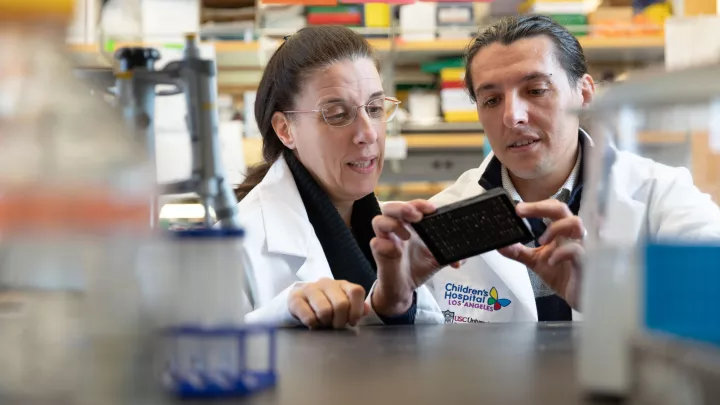
Study Offers New Insights Into How the Most Common Kidney Cancer Starts in Kids
Researchers at Children’s Hospital Los Angeles found new clues to how disruption of the early process of kidney formation may be linked to the development of Wilms tumor — also known as nephroblastoma — the most common pediatric kidney cancer.
In a study published in Advanced Science, researchers at the GOFARR Laboratory in Urology compared kidney progenitor cells from tumors, with cells from healthy kidneys. These progenitor cells normally mature into kidney cells, but when their early development is dysregulated, they start behaving like cancer stem cells.
While most children with Wilms tumor can be successfully treated, current therapies are aggressive. However, a small percentage of kidney cancer patients has unfavorable prognoses or relapses. No therapy exists for these patients. “Our goal is to find new treatments for all types of Wilms tumors,” says Laura Perin, PhD, study senior co-author along with Stefano Da Sacco, PhD. “This study could push personalized medicine forward for those kids to improve their treatment and their lives.”
How healthy cells turn into tumors
“Pediatric Wilms tumor can be considered a developmental cancer,” says Dr. Perin, who is also Associate Professor at the Keck School of Medicine of USC. “The adult healthy kidney lacks kidney progenitor cells, since they are “exhausted” before birth. But in Wilms tumors, instead of giving rise to a functional kidney, these precursor cells persist and form the tumor mass.”
The researchers characterized these kidney progenitor cells, finding that these cells can reproduce the original tumor. “They are aggressive, they’re drug-resistant, they metastasize like cancer cells, and they are able to create the full tumor that we see in patients,” says Astgik Petrosyan, PhD, researcher at the GOFARR Lab and first author of the study. “Using these cells, we were able to regrow the tumor. We identified them as the cancer stem cell population. Why they are not able to become mature cells is not clear yet. We believe that one of the reasons is their interaction with the tumor microenvironment.”
Cells miscommunicate
The progenitor cells in Wilms tumor also abnormally expressed ITGβ1 and ITGβ4, proteins which signal cells to “stick” to their microenvironment to induce kidney development. “It is like these cells cannot receive or respond to signals that tell them to turn into kidney tissue,” says Dr. Da Sacco.
“The mechanisms driving Wilms tumor cell development could be more precisely targeted to enable earlier kidney cancer diagnosis and treatments,” says Dr. Perin.
Learn more about the research being conducted at CHLA’s GOFARR Laboratory.


